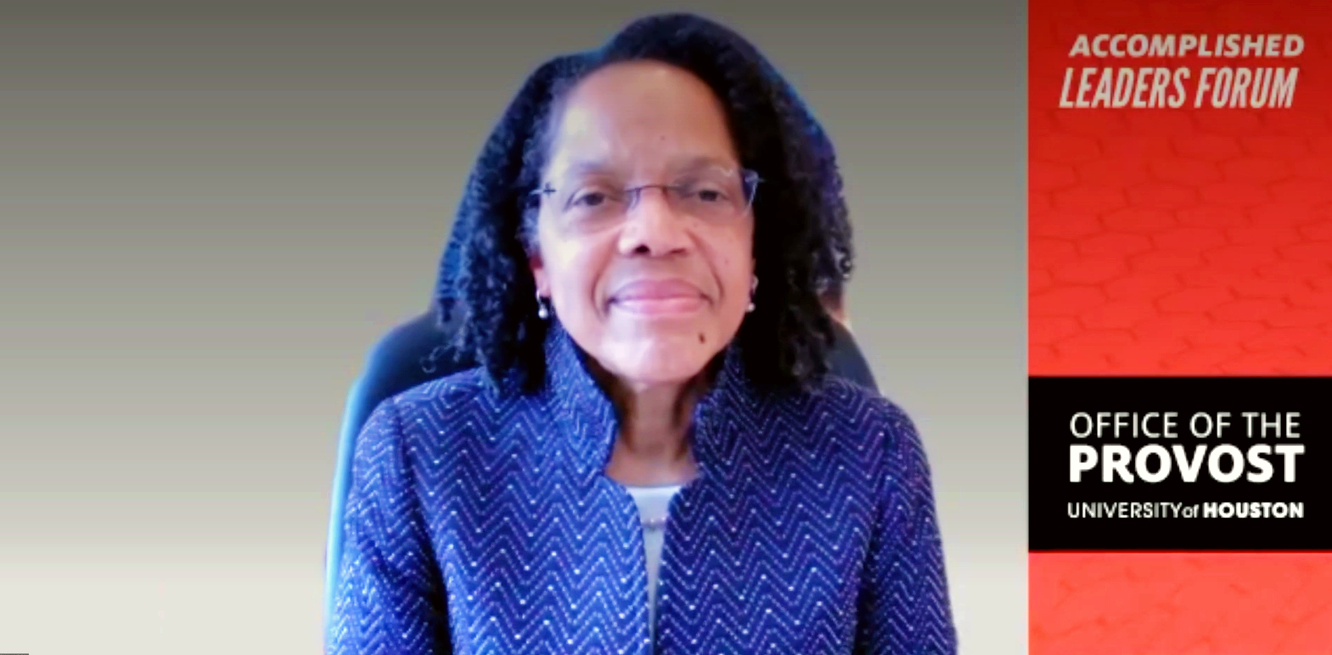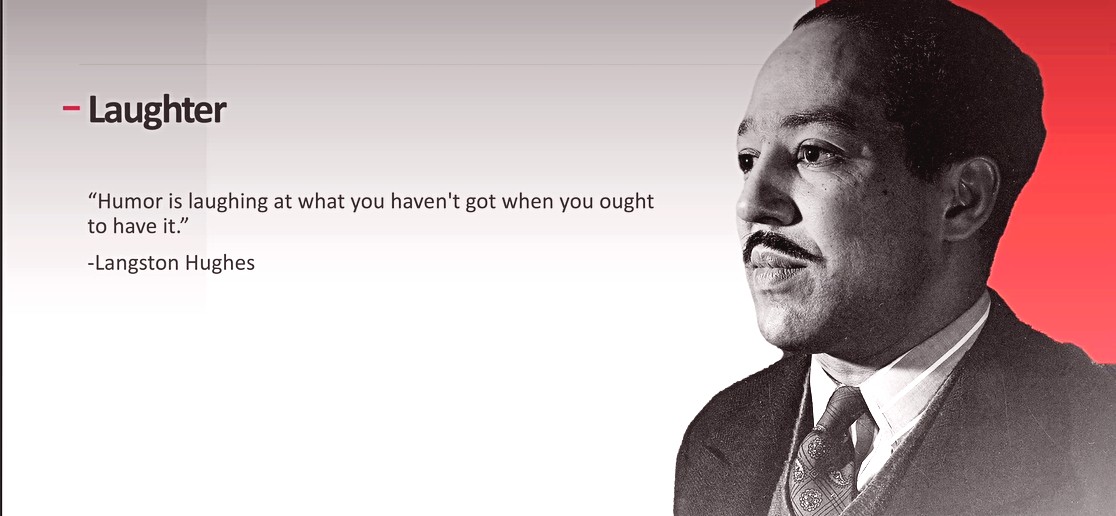Mission Accomplished: Gilda Barabino Shares Insights on Leadership
Noted Scholar Featured During Provost’s Accomplished Leaders Forum
By Mike Emery, 713-743-7197

The University of Houston’s Accomplished Leaders Forum spotlights academic trailblazers who inspire and innovate. This year’s guest speaker did exactly that during her recent presentation to the Cougar Community.
President of Olin College of Engineering Gilda Barabino addressed faculty, staff, and students as the spotlight speaker for the 2022 forum during a virtual presentation on March 3. The event was hosted by UH Senior Vice President for Academic Affairs and Provost Paula Myrick Short, who launched this series in 2019.
Barabino’s presentation was a fitting start to Women’s History Month at UH since she made history as the first Black woman accepted to Rice University’s chemical engineering doctoral program and is only the fifth woman of color to complete a doctorate in that very discipline.
Those accomplishments and other experiences from her career and personal life contributed to her presentation titled “A Counternarrative from a Woman of Color Academic.” Its content drew from a chapter she authored for the similarly titled book, “Counternarratives from Women of Color Academic: Bravery, Vulnerability and Resistance”.
“I think there are narratives that we all fall into,” she said. “What we really need to hear and understand are the counternarratives, and that’s what I want to focus on today.”
In addressing the standard narrative, she referred to the portrayal of women of color as being a monolithic group and how in the academy, “meritocracy accounts for gender and racial gaps.” In challenging this narrative, Barabino presented a counternarrative based on her story.
In recounting her professional journey, she addressed just some of her career milestones. In addition to her accomplishments at Rice University, she was the first African American woman to hold a tenure track chemical engineering teaching position at Northeastern University. Barabino was also the first African American faculty member in biomedical engineering at Georgia Tech and Emory College’s Wallace H. Coulter Department of Biomedical Engineering. Those are among the watershed moments that helped Barabino develop as both an educator and leader in higher education.
Among the keys to her career progression has been empowerment, she said.
“As an educator, I feel it’s important to empower others,” she said.
Empowerment, she added, contributes to one’s identity, mindset, sense of belonging, leadership abilities, and community.
Barabino also circled back to another key element in career growth—narrative.
“I don’t want to underestimate the power of stories,” she said. “People want to connect with one another, and they do that by sharing stories. Stories are passed down, and in understanding diversity, equity, inclusion, and community, the narrative is especially important.”
Before closing her presentation, she offered a quote from author Langston Hughes:
“Humor is laughing at what you haven’t got when you ought to have it.”
 This statement, Barabino said, is one everyone should take to heart, particularly during challenging times.
This statement, Barabino said, is one everyone should take to heart, particularly during challenging times.
“I laugh a lot, and I encourage everyone when dealing with difficult problems to take a break and enjoy a little levity,” she said.
Barabino then engaged in a question-and-answer session with Sarah Larsen, vice provost and dean of UH’s Graduate School. Larsen’s first question focused on the kind of leadership necessary for higher education institutions to achieve their purpose.
“I believe it’s very important for leaders to be bold, courageous, unapologetic, and equity minded,” Barabino said. “If you want to be serious about your mission, you must be willing to step out there and provide that kind of leadership … and be adaptable. What might have worked at one point in time, may not work today. The world is rapidly changing, and leaders must be agile and prepared to meet these changes, as well as the needs of the students that we are bringing in now.”
A question submitted by an audience member asked how Barabino stayed strong and focused during her career.
“I keep my eye on the bigger thing … or the larger goal I hope to achieve,” she said. “Throughout my life and career, that bigger thing has always been equity and fairness. In higher education, I figured out how to get other things accomplished while keeping my eye on that bigger thing. I’d mentor someone, or get a grant proposal out, all the while staying focused on accomplishing that goal of equity and fairness in the academy.”
At the conclusion of the event, Short commended Barabino on her presentation and thanked her for sharing her insights with the UH community.
“I am incredibly inspired and impressed,” Short said. “I am walking away from today’s event having gained new perspectives on things I’ve thought about for some time. You probably don’t realize that you’re a mentor and a role model to me, but you are. Thank you so much! You honor us by being part of the Accomplished Leaders Forum.”